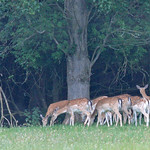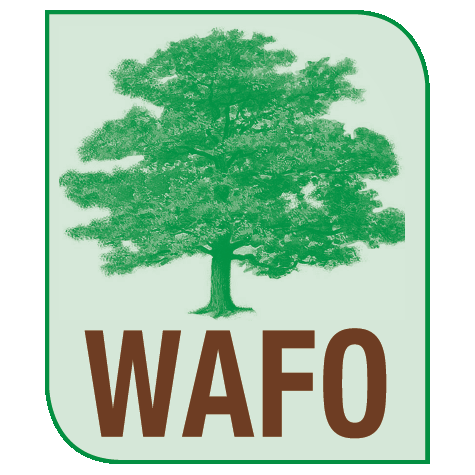- Climate Change Report Offers Recommendations to Forest Landowners
- Foreseeable Risks Added to Some New MFL Plans
- New State Forestry Committee Members Named
- MFL Clean-Up Bill Re-Introduction Needed
- Let Us Know Your Legislative/Regulatory Priorities
Governor’s Report on Climate Change Includes Important Private Forestry Recommendations
It is our hope that this Report will address the tax inequities that often penalize forest landowners who plant trees.
Following Governor Evers Executive Order #52, a Task Force on Climate Change was established to develop recommendations on how Wisconsin can establish policies that would meaningfully mitigate the effects of climate change for the benefit of Wisconsin communities.
The Governor’s Climate Change Report provides extensive recommendations related to forestry. Of special interest to private landowners would be actions to:
• Develop and implement a rural tree-planting campaign by targeting unprofitable, marginal, or highly erodible farmland, agricultural or open lands for planting. Editorial Comment: Under Use Value Assessment rules, landowners who convert agricultural lands by planting trees experience severe penalties. On a statewide average, landowners who do so would see a whopping 1000% increase in property taxes. In the southern parts of the state, property tax increases can be as high as 6000%. To see what these increases would be in your town, go to WAFO.org and see how your taxes would compare.Taxing forest land on its current use rather than its highest and best use would help reduce current fragmentation trends. (Note: WAFO has long supported the concept that actively managed forest lands should be taxed similar to other agricultural lands.)
• Provide tax credits or other financial incentives to landowners who donate conservation easements with carbon benefits.
• Increase funding for private landowner assistance through the Wisconsin Forest Landowner Grant Program (WFLGP) to encourage more tree planting.
Stay tuned. We are hopeful that some of these recommendations will be included in Governor Ever’s biennial budget, which is expected to be released in February.
Identification of Foreseeable Risk in Management Plans
Following adoption of NR46, DNR’s rule on the Managed Forest Law, the DNR moved to implement a procedure that would prevent landowners from utilizing law provisions that allow withdrawal from the MFL, without penalty, under some circumstances. Under current law, landowners are allowed to voluntarily withdraw from the MFL, without penalty, if natural events outside of their control occur that prevent the land from being able to meet required productivity levels. Part of the DNR’s intent for doing this was to give a “heads up” to landowners, some of whom might decide they no longer wanted to enter the program.
Consulting foresters were directed to identify foreseeable risks in recently submitted management plans. Examples of foreseeable risk the DNR offered include: emerald ash borer, high water tables, deer browse and other risks that would likely result in the entry from being able to maintain productivity over the entry time frame. If that identified risk ultimately occurred and landowners could not maintain productivity requirements, they would be removed from the program and be required to pay back tax penalties.


As of January 1, 98 new landowners were flagged as having foreseeable risks that could result in lands being removed, with penalties, should that risk occur.
Following a review of these plans, WAFO commented that many of these plans identified various risks but did not specifically identify the risk that could result in their being removed from the program. Without a specific risk being identified, the DNR noted it would be difficult to implement their process to remove lands with penalty. In addition, they noted that all landowners flagged with foreseeable risk decided to enter the program regardless of the designation.
WAFO will continue to monitor the DNR’s action on implementing foreseeable risks and may offer some legislation in the future to help clarify the original intent to allow withdrawal without penalty should events outside of a landowners control occur in the future.
New Forestry Committee Members Appointed
We anticipate that most of the legislation that private woodland owners are interested in will be referred to these Assembly and Senate committees. If you are a constituent of any of these members, it would be beneficial to give them a call or a note congratulating them on the appointment and let them know forestry issues are important to you.
Members appointed to the Assembly Committee on Forestry, Parks and Outdoor Recreation are: Representative Mursau (Chair), Krug (Vice-Chair), Wichgers, Edming, Pronschinske, Tusler, Swearingen, Tittl, Moses, Callahan, Milroy, Andraca, Hebl, Sinicki, and Snodgrass.
Members appointed to the Senate Committee on Insurance, Licensing and Forestry are: Senator Felzkowski (Chair), Stafsholt (Vice-Chair), Roth, L. Taylor, and Ringhand.
Reintroduction of MFL Improvement Bill Needed
Following passage by the full Assembly and the Senate Forestry Committees in early 2020, Senate Bill 867 only needed to be approved by the full Senate before it could be sent to the Governor for final approval. Unfortunately COVID intervened and the Senate never voted on the bill and died as a result.
This bill included: allowing buildings needed for equipment storage to be located on lands in the MFL, allowing landowners to meet the 20 acre minimum entry requirement by including unconnected parcels, and broadening the ability to add new lands to existing contracts and expanded conditions which would allow withdrawals from the MFL without penalties.
Let us Know Your Legislative and Regulatory Priorities
While MFL changes and climate change issues affect us all, we’d also like to hear what’s most important to you. Please email us and let us know what other issues you feel are important and that you’d like us to address.
